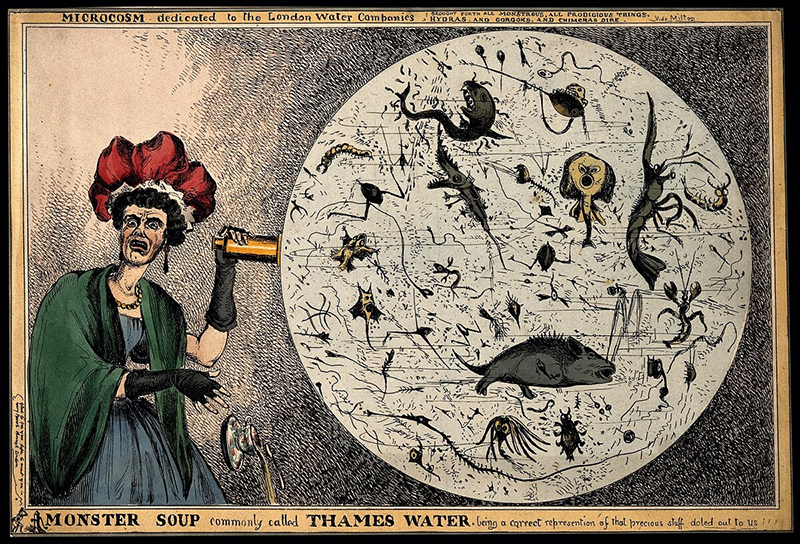Oct. 22, 2020
Sonic Acts invites applicants for the Overexposed residency program. Starting in December 2020, this environmental residency is part of a four-year research program on the materiality of pollution and systemic and political issues related to the contamination of our environment.
Due to the inability to host residents physically, this call invites three international artists and researchers to take part in a home-based residency. The residency is an opportunity for artists and researchers to expand their practice and develop new ideas and methodologies while being supported financially in their work over a period of one month.

William Heath: ‘Monster Soup Commonly Called Thames Water, Being a Correct Representation of that Precious Stuff Doled Out To Us!!!’ // Public Domain
Residents are expected to develop their artistic practice around the core questions underlying the Sonic Acts Overexposed program, investigating pollution as a global thread that affects everything living and non-living on the planet. With this residency program, Sonic Acts wishes to create awareness about pollution in local surroundings and its interconnectedness on a planetary scale; stimulate thought and imagination about necessary steps, both locally and globally; and, of course, mobilize direct action. Artistic research is considered as an exploration of the connections between aesthetics, historical materiality and politics.
The Overexposed residency program is intended for artists and researchers active in the fields of environmental, blue, animal and energy humanities, discard studies, disaster studies, waste colonialism, health care studies, postcolonial studies, geopolitics, media and experimental arts, etc. There is no age limit for applicants. Sonic Acts particularly welcomes and encourages applications from disabled, queer, non-binary and POC artists and researchers. Applicants younger than 35 years old are also encouraged to apply.
Each resident receives a total fee of 2000 Euros for the residency, including production costs during the residency. Cost for presentation in the context of a Sonic Acts program will be borne by Sonic Acts.
Application Info
sonicacts.com
Deadline: Nov. 1, 2020





















